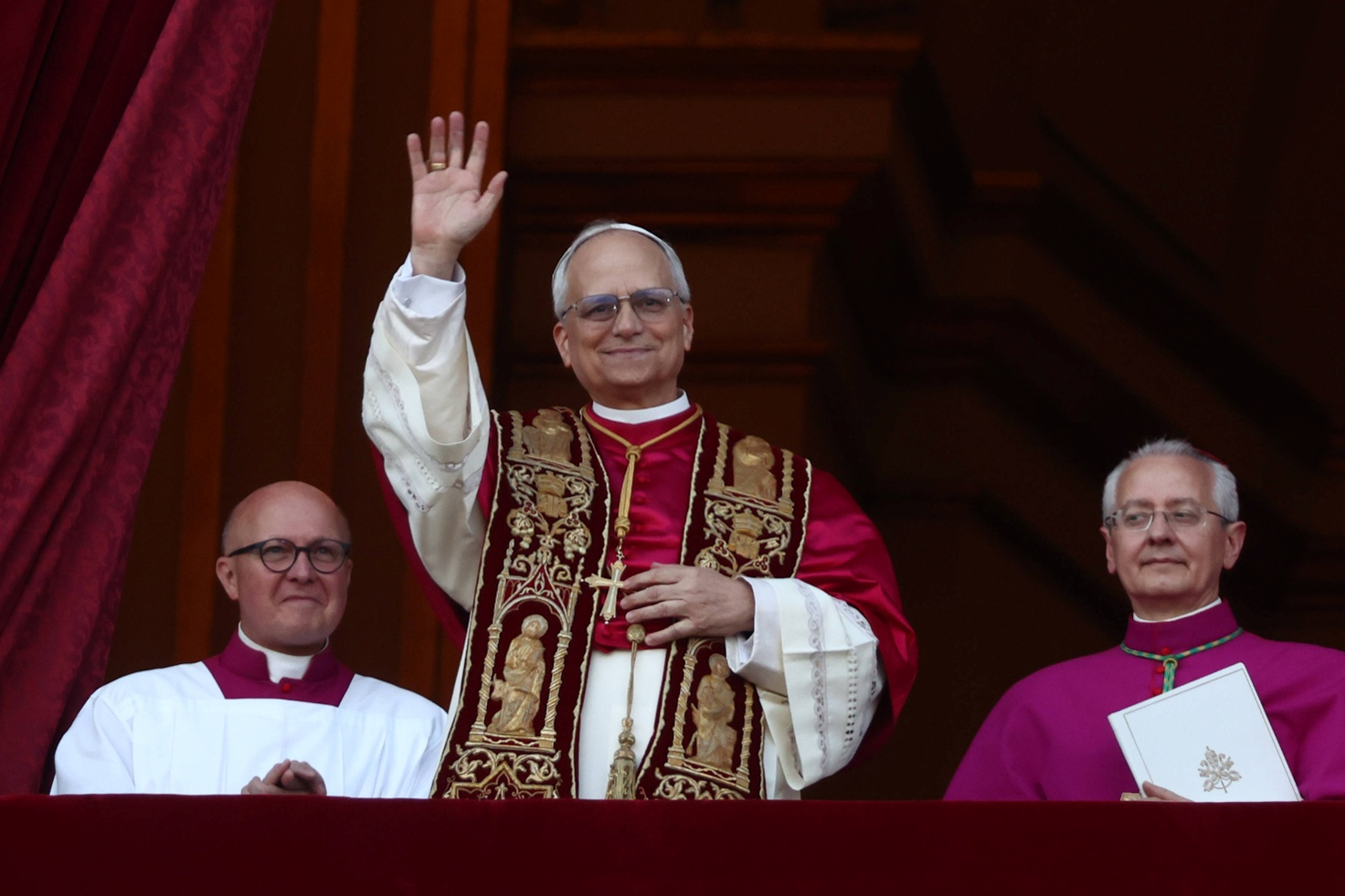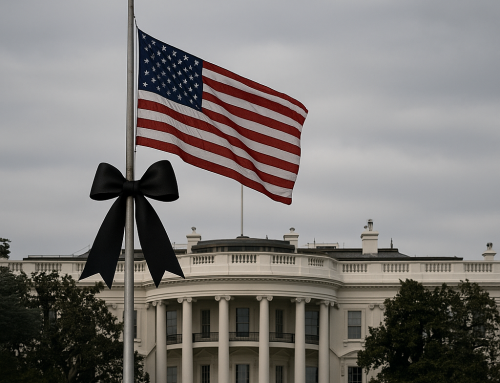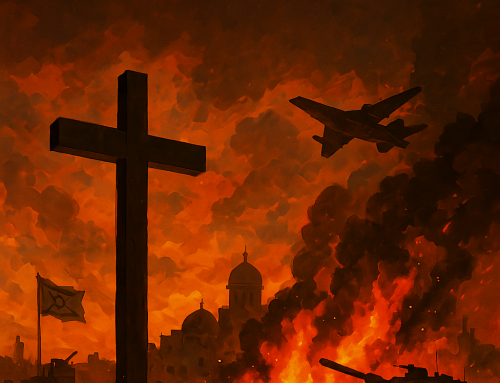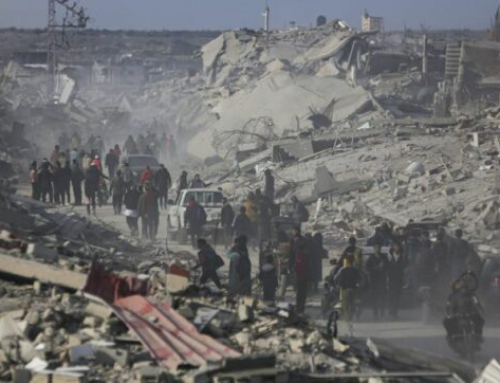Pope Leo XIV and the Signs of the Last Times: A Prophetic Look at the New Pontificate
In May 2025, the Catholic Church experienced a momentous moment: the election of Pope Leo XIV, the first North American pontiff and a key figure in a historical period marked by global crises. But what does the Word of God tell us about events like this? Is it possible to read this new pontificate in light of eschatological biblical prophecies?
The election of Cardinal Robert Francis Prevost as Pope Leo XIV, the first North American to sit on the throne of Peter, came at a time of great world instability. Wars, humanitarian crises, religious tensions and an obvious spiritual bewilderment make this election particularly significant. In the book of Revelation, the opening of the seals (Rev. 6) introduces a sequence of global tribulations that seem to be mirrored in the events of our time. The spiritual leadership of Leo XIV could fit into this scenario as a sign of an awakening or as a “voice crying out in the wilderness” (Is 40:3).
The biography of Pope Leo XIV reveals a meek, missionary figure rooted in evangelical simplicity. The Scriptures announce, in dark times, the arrival of faithful shepherds who do not abandon the flock (Jer 3:15). His pastoral style recalls the figure of Isaiah’s “suffering servant” (Is 53), a man who does not impose but accompanies. In a time when iniquity is rampant (Mt 24:12), his life could be a call to silent and consistent holiness, a prophetic sign against religious hypocrisy.
Pope Leo XIV’s motto, “In Illo Uno Unum,” directly recalls Jesus’ priestly prayer, “that they may be one” (Jn. 17:21). Unity among Christian peoples and denominations is also central to eschatological visions, where a single people under one Shepherd is prophesied (Ez 37:24). The call for “unarmed and disarming” peace can be seen as a prophetic attempt to anticipate the time described by Isaiah, when “swords will be turned into plows” (Is 2:4).
In his first message as pontiff, Leo XIV called for a “disarmed and disarming” peace, evoking the figure of Brother Christian de Chergé, a symbol of modern martyrdom. This link between martyrdom and witness is closely related to the eschatological prophecies of Revelation 6 and 7, where martyrs cry out to God and receive white robes. The Pope also spoke of a wounded and divided world-a powerful reminder of Jesus’ words about “nations against nations” and the need to “watch and pray” (Mt 24:6; Lk 21:36).
The new pope has declared his intention to continue the reform of the Church, especially in transparency and the fight against abuse. This is in line with the prophetic announcement of the return of the “spirit of Elijah” (Mal 3:23), who will “turn the hearts of the fathers back to the children” and call for conversion. Church reform can be seen as part of the purification needed before the Lord’s return (1 Pet 4:17).
Many Christians see in these years a time full of signs: pandemics, wars, divisions, environmental crisis and a moral collapse. The arrival of a meek Pope, called to lead the Church in this scenario, can be read as a sign of mercy and a call to conversion, following the model of Jonah for Nineveh (Gen. 3). However, Scripture warns us that even in the end times there will be false prophets and illusions of peace (1Th 5:3). Therefore, it will be essential to discern, watch and pray.
Pope Leo XIV may not be the direct fulfillment of a biblical prophecy, but his pontificate fits into a prophetic framework that deserves attention: he could be a curb on the great apostasy (2 Thess 2:3), a proclamation of hope before the fulfillment of the ages, or the voice preparing the way for the coming King.
“He who has an ear, let him hear what the Spirit says to the churches” (Rev. 2:7).
Salvation history is not a chaotic set of events, but a red thread guided by Providence. The Church Fathers teach us that every age is pregnant with the eternal, and that the Church walks through history as a salvific ark in the midst of the world’s flood.
Irenaeus wrote:
“At the end of time, the Church will be purified like gold in the crucible, that she may appear clear in the eyes of her Lord.” (Against Heresies, V, 33)
The pontificate of Pope Leo XIV, with its emphasis on peace, justice, mercy and reform, seems to fit into this vision: a time of purification, of trial, but also of preparation.
The prophet Malachi announces:
“Behold, I send my messenger to prepare the way before me…he will purify the sons of Levi and refine them as gold and silver” (Mal 3:1-3).
In this light, Leo XIV can be seen as a “messenger of purification,” called not so much to revolutionize the world as to sanctify the Catholic Church to make it ready to receive the Bridegroom.
Pope John Paul II, in a speech in 2000, spoke of a “new spiritual springtime,” preceded, however, by “a new passion of the Church,” an ecclesial via crucis. Perhaps the new pope will lead the Church precisely in this difficult segment of the journey: between Gethsemane and the Resurrection, awaiting the Lord’s glorious return.
The Bible’s eschatological teaching is not to instill fear, but to awaken vigilance and hope. Like the wise virgins (Mt 25), we are called to guard our faith and the oil of the Spirit, ready to receive the Bridegroom.
Pope Leo XIV, with his meek, pastoral and reforming spirit, may not be the last pope, but he is certainly a sign of the times: an invitation to the Church to return to the essentials, to prepare for the Lord’s return with lit lamps.
“The time is coming when they will no longer endure sound doctrine…” (2 Tim 4:3).
“But whoever perseveres to the end will be saved.” (Mt 24:13)
In his first address, the Pope called for a “disarmed and disarming” peace, quoting Brother Christian de Chergé, a martyr.
“When they say, ‘Peace and safety!’ then sudden ruin will befall them” (1Th 5:3).
His call is not an illusory peace, but an evangelical one. A voice reminiscent of John the Baptist’s cry in the wilderness (Lk 3:4-6).
Its action focuses on:
- Church Reform
- Justice for the victims
- Unity among Christians
- Dialogue with the world
- Gospel simplicity
These points reflect the task of the Bride of Christ preparing to meet the Bridegroom:
“His Bride has made herself ready” (Rev. 19:7).
The Bible tells us about:
- A time of purification (Mal 3:2-3)
- A great deception and apostasy (2Th 2:3)
- The arrival of righteous shepherds (Ez 34:23)
- Martyrdom and perseverance (Rev. 6:11)
The pontificate of Pope Leo XIV could be a voice preparing the way of the Lord, or the last call to conversion before the eschatological events announced. We cannot know the timing with certainty, but we can discern the signs.
With the motto “In Illo Uno Unum,” Leo XIV proclaims unity in the one true God. It is a clear response to the fragmentation of the world and the Church:
“Let them be one, that the world may believe” (Jn. 17:21).
A message that contrasts with the spirit of antichrist, which “divides and confuses” (1 John 2:18).
“When they say, ‘Peace and safety!’ then sudden ruin will befall them” (1Th 5:3).
His call is reminiscent of John the Baptist’s cry in the wilderness (Lk 3:4-6).
Its action focuses on:
- Church Reform
- Justice for the victims
- Unity among Christians
- Dialogue with the world
- Gospel simplicity
These points reflect the task of the Bride of Christ preparing to meet the Bridegroom:
“His Bride has made herself ready” (Rev. 19:7).
“The Church will be purified like gold in the crucible.”
– St. Irenaeus
“Watch therefore, for you know neither the day nor the hour.”
– Jesus (Mt. 25:13)
The pontificate of Pope Leo XIV could be a voice preparing the Catholic Church and a signal for the whole world : Christ is about to return ! It could be the last call to conversion before the announced eschatological events. We cannot know the timing with certainty, but we can discern the signs.
At the time of Christ’s return , according to the Scriptures , we will not be asked what religion we are , the question will be personal and unequivocal : Are you ready ! There will be no Catholics , no Protestants , no denominations or religions , only our faith and righteousness in Christ will count .





